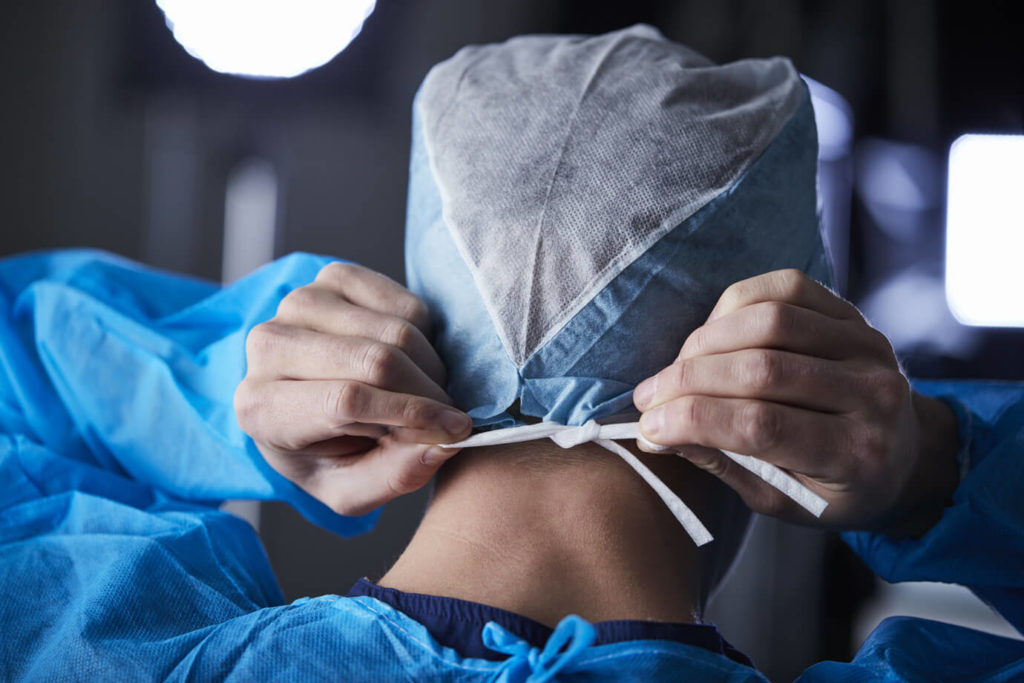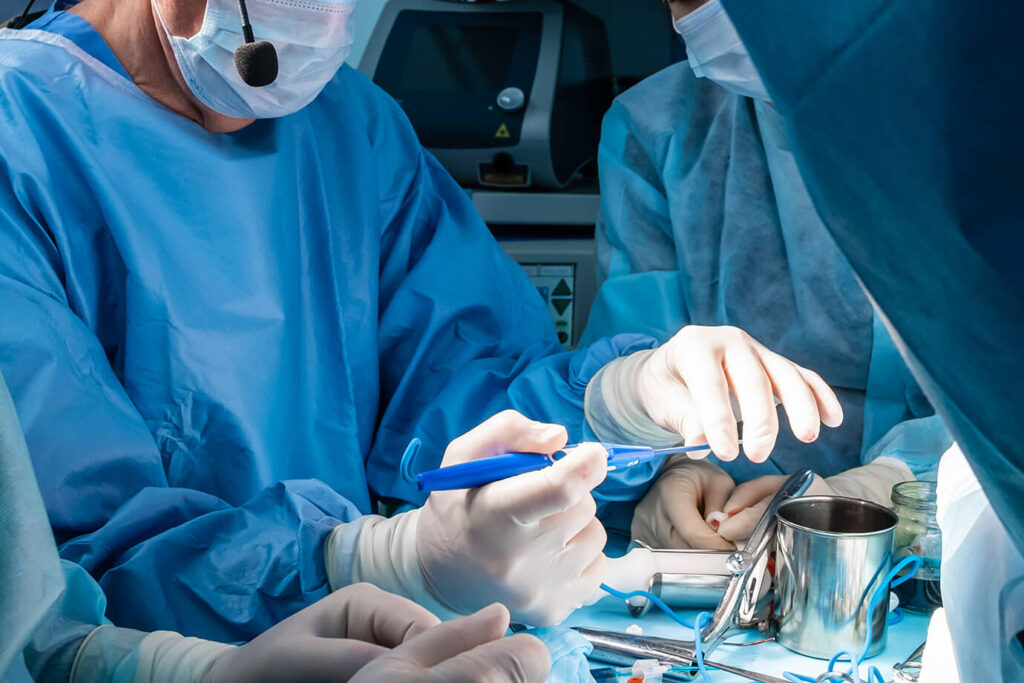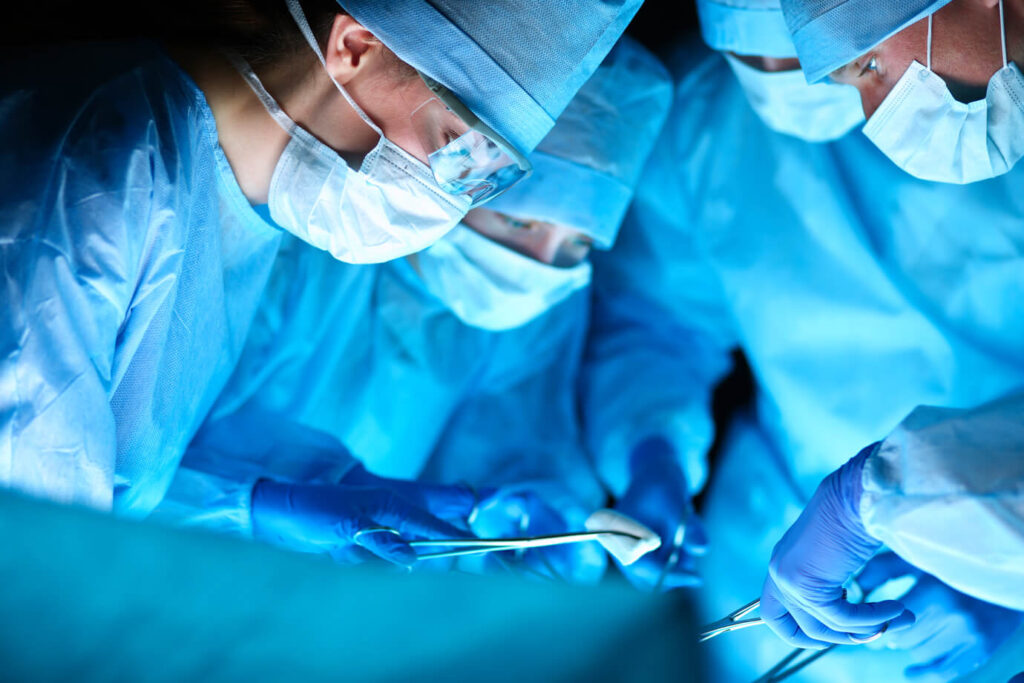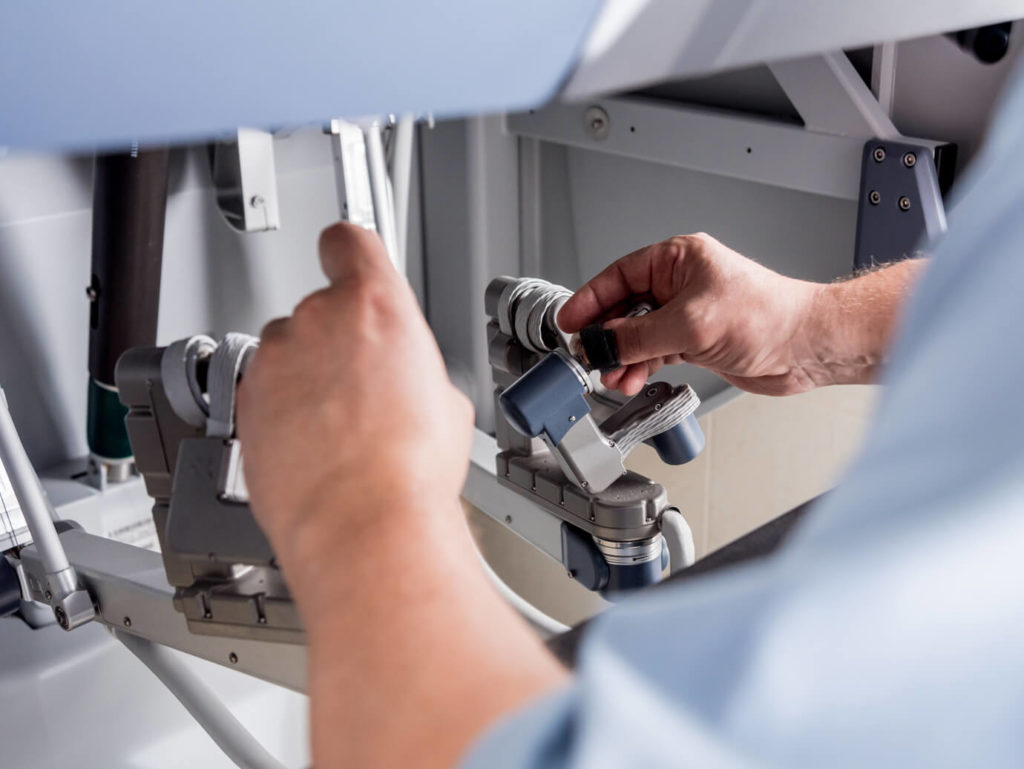Surgical Associates of Corpus Christi
What is a hernia?
Your abdominal cavity contains your internal organs and is lined with multiple layers including skin, subcutaneous fat, fascia, muscle, and an inner lining layer called the peritoneum. The fascial layer is the most important and toughest layer whose job is to provide support keeping organs where they belong. We have natural “holes” in these fascial layers which permit vessels or other structures to proceed through the muscle layers. Due to strain, stresses, or weakening of the muscle layers following a prior surgery, these “holes” will increase in size and allow for other organs to protrude (such as small bowel) resulting in a bulgę or pain. Some of these “holes” have been present since birth and can enlarge over time due to muscle weakness or begin at a prior incision site.
Who is at risk?
Those at increased risks of developing hernias include patients who are overweight, pregnant, those who lift heavy items, and those who strain or cough frequently.
Symptoms
The most common symptoms include a visible bulge of the abdominal wall or pain/pressure at the hernia site. Sometimes the pain is severe and the contents of the bulge can’t be reduced. If the blood supply to the contents is compromised, this is considered a surgical emergency and you should go to the ER immediately.
Diagnosis / Tests
Most hernias are diagnosed on physical exam, however a ultrasound, computerized tomography (CT) scan, blood tests, urinalysis, or a endoscopy may help in establishing the diagnosis, the severity of the hernia, or possibly the cause of the hernia.
Surgical and Non-surgical management / treatment.
There is not a difference in recurrence rates, long-term pain, or quality of life between laparoscopic/robotic vs open surgical hernia repair.
Surgical repair is based on the size of the hernia, size of the patient, the location of the hernia or the history of a prior hernia repair. Some hernias, such as inguinal hernias, will need to be repaired with care not to disrupt blood the flow to other organs. Other hernias may be closed completely with suture and/or mesh, Hernia surgery can also be performed laparoscopically, robotically (form of laparoscopic), or using an open approach. Some options may not be available based on your history. Your surgeon has performed hundreds if not thousands of repairs and has a good idea which repair would result in the better outcome. Both laparoscopic/robotic and open hernia repairs have their risks and benefits. Both surgical techniques are considered by your surgeon during the consultation.
Mesh (which recently has been presented to the public in a negative fashion by attorneys) is a woven material made from the same if not similar suture material used to close the hernia. This mesh or “screen” is generally recommended and placed to reduce the risks of recurrent hernia. Many of the lawsuits are based on placing the mesh near organs that stretch and contract (such as the genital region), or erosion of mesh into other organs. Your surgeon has many years of expertise on mesh types and placement to significantly lessen these complications. Generally, a layer of tissue or protective layer on the mesh is used to stop these complications. Some hernias are small enough to not require mesh, but generally the recurrence rate is much higher without mesh. Most patients are not aware of the mesh after the healing process is complete.
Non-surgical management is usually held for those patients who are at high risk for complications or fetal death (recent heart attack or pregnancy). We will also offer non-surgical management if the hernia is not causing symptoms or is too small. Surgery is about weighing risks and benefits so your surgeon is trained in discussing your particular case to determine if surgery is warranted. Hernia belts or trusses are a nonsurgical option that, when fitted correctly, apply pressure to the hernia site. This option has a 30% success rate and more than half the patients find this product uncomfortable.
Since obesity, tobacco use, and diabetes increase the incidence of wound complications and recurrence rates, your surgeon may place you on a program to decrease these risks prior to offering surgery and thus support the best outcome.
Risks of Surgery
Risks of surgery include bleeding, infection, and damage to adjacent organs, recurrence of hernia, pneumonia, and heart complications. Your surgeon has trained extensively to decrease the incidence of such risks. Following the post-operative instructions gives you the best opportunity to have a successful recovery.
Post-Operative Care
Many elective patients will go home the same day if the repair is small. You may awaken with an abdominal binder (elastic girdle) which is present only for your comfort. You are encouraged to walk and limit lifting to no greater than 8 pounds (e.g. weight of a gallon of milk). Most patients are taking pain medications for 5-14 days and can resume driving if pain is managed by over-the-counter pain medications only. We recommend a smoothie or liquid diet for the first day while anesthesia is wearing off, and then proceed with your typical diet. Mild redness or bruising may occur at the incision site. You will be given instructions on wound care from your post-op nurse. “Baby-stepping” or slowing increasing activity is very important in decreasing the risk of a recurrent hernia. We ask you to walk before jogging, and jog before running. Similar recommendations are made with respect to lifting and getting back into your standard routine.
Some meshes may contract or decrease in size over a time frame of months. This could lead to mild pain with movement but is generally short-lived (seconds) and occurs less frequently as time proceeds.
Call your surgeon if you develop severe pain, stomach cramping, a high fever (over 101 F), a odor or drainage from the incision, no bowel movements for 3 days, or vomiting with the inability of keeping down fluids.
For more information
https://www.facs.org/-/media/files/education/patient-ed/ventral_hernia.ashx





